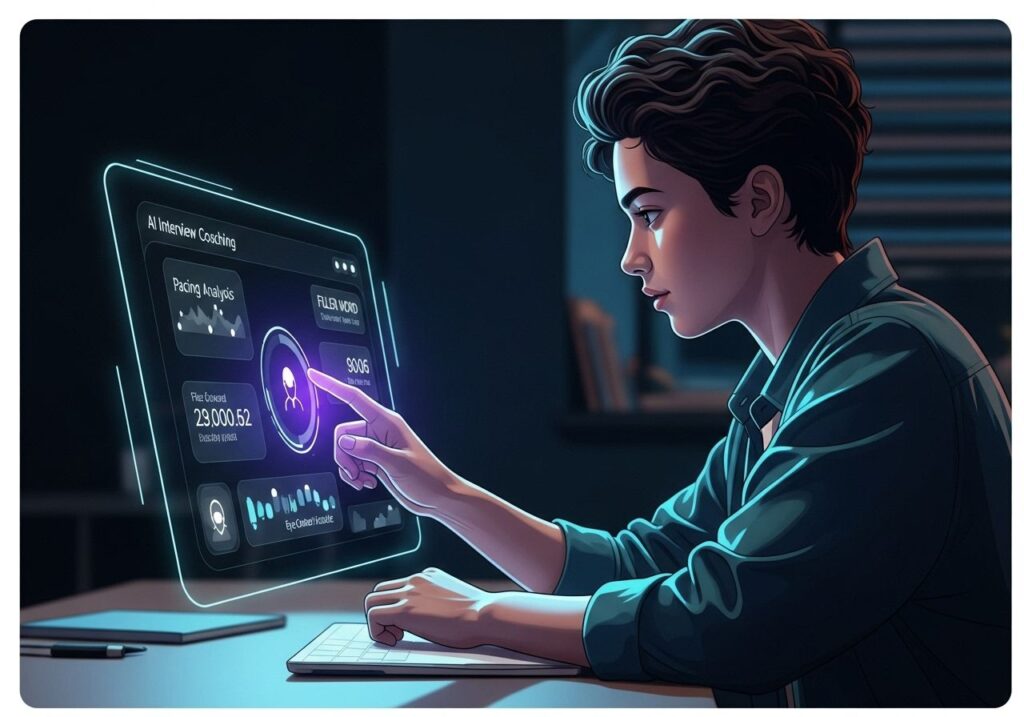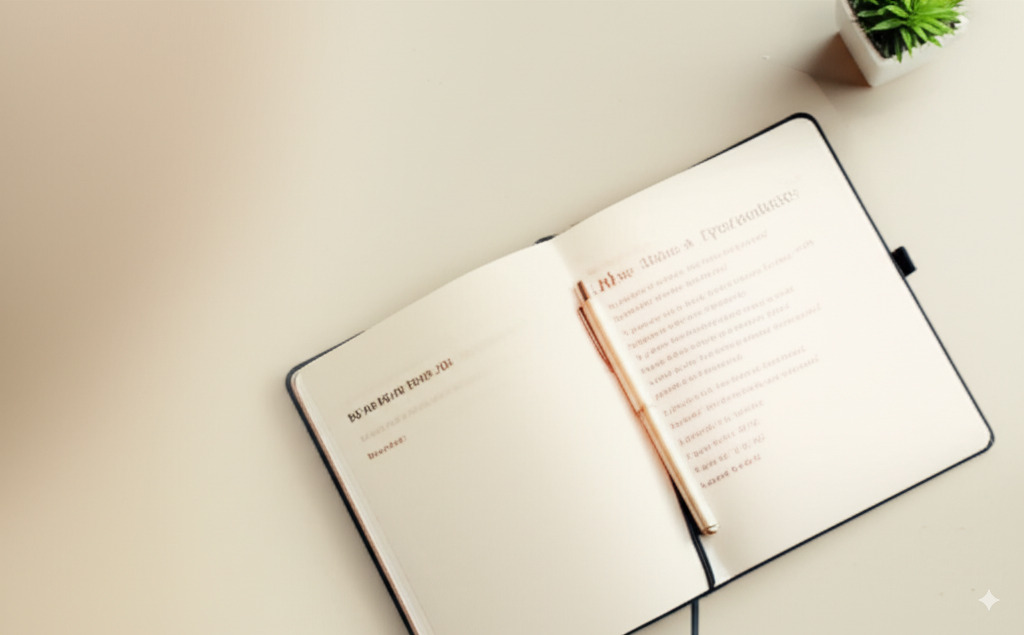The finish line of your academic journey or the commencement of your professional life brings with it an exciting, yet often daunting, challenge: the job interview. For students nearing graduation and new grads embarking on their career search, the prospect of an interview can feel like navigating uncharted waters. You might have the grades, the projects, and the ambition, but when faced with the “Tell me about yourself” or “Why this role?” questions, a sudden wave of anxiety can hit. Where do you even begin with interview practice when you have limited professional experience? This is a common question, and the good news is, you’re not alone, and there’s a clear path to building your interview confidence.
This comprehensive guide is designed specifically for students and new grads who are wondering where to start their interview practice. We’ll move beyond generic advice to give you actionable strategies, tools, and insights that will transform apprehension into aptitude. From understanding what interviewers are really looking for, to leveraging your academic and volunteer experiences, and ultimately, mastering various interview practice techniques – including mock interviews and the power of online platforms – you’ll learn how to shine in any interview scenario. Get ready to turn your potential into a powerful performance.
Why Interview Practice Is Non-Negotiable for Early Career Professionals
It’s tempting to think you can “wing” an interview, especially if you’re articulate or perform well under pressure. However, for students and new grads, dedicated interview practice is not just beneficial; it’s absolutely essential. Here’s why:
- Bridging the Experience Gap: Unlike seasoned professionals, students and new grads often don’t have years of work experience to draw upon. Interview practice helps you articulate your transferable skills from academic projects, internships, volunteer work, and extracurricular activities, proving you have what it takes.
- Reducing Anxiety and Building Confidence: The unknown is inherently stressful. Practicing helps you familiarize yourself with the interview format, common questions, and how to structure your answers. This familiarity reduces fear and boosts your self-assurance, allowing your genuine personality and capabilities to shine through.
- Refining Communication Skills: Interviews are as much about how you say something as what you say. Interview practice helps you speak clearly, concisely, and persuasively. You learn to avoid rambling, use strong action verbs, and maintain professional body language.
- Learning from Mistakes (Without the High Stakes): Would you rather fumble your answer in a low-stakes mock interview with a friend or a high-stakes interview for your dream job? Practice provides a safe space to make mistakes, receive feedback, and refine your approach before it counts.
- Tailoring Your Responses: Every job and company is different. Through interview practice, you learn to tailor your experiences and skills to the specific requirements and culture of each employer, making your answers resonate more effectively.
For students and new grads, consider interview practice as critical as studying for an exam or completing a major project. It’s an investment in your career future.
Phase 1: Laying the Foundation – Know Yourself, Know the Role
Before you dive into answering practice questions, you need a solid understanding of two key things: yourself and the role you’re applying for. This foundational work will make your subsequent interview practice far more effective.
1. Self-Assessment: Your Personal Inventory
What are your strengths? What motivates you? Where do you want to be in five years? These aren’t just philosophical questions; they’re vital for crafting compelling interview answers.
- Skills Inventory: List all your skills – technical (e.g., coding languages, software proficiency), soft (e.g., communication, teamwork, problem-solving, leadership, adaptability). Don’t underestimate skills gained from group projects, part-time jobs, or club leadership.
- Accomplishments: Recall specific instances where you achieved something significant. These can be academic awards, successful project outcomes, overcoming a personal challenge, or leading an initiative. Quantify these achievements whenever possible (e.g., “Increased club membership by 20%”).
- Values and Goals: What’s important to you in a workplace? What kind of environment do you thrive in? What are your short-term and long-term career aspirations? Knowing this helps you assess cultural fit and answer questions about your motivations.
- Areas for Development (Weaknesses): Everyone has them. Identify genuine areas you’re working on, and be prepared to discuss them constructively, emphasizing what steps you’re taking to improve.
2. Research the Role and Company: Tailoring Your Approach
Generic answers rarely impress. Successful interview practice involves tailoring your responses to the specific opportunity.
- Deconstruct the Job Description: Go beyond keywords. Understand the core responsibilities, required skills, and desired qualifications. Highlight those that align with your self-assessment.
- Company Culture and Values: Visit the company’s website, read their “About Us” section, social media, and Glassdoor reviews. Do they emphasize innovation, collaboration, customer service, or something else? Weave these values into your answers.
- Recent News/Projects: Show you’ve done your homework. Mention a recent company achievement or project that excites you.
- Interviewers (if known): If you know who will be interviewing you, a quick LinkedIn search can reveal their background and interests, allowing you to subtly connect with their experience.
This deep dive allows you to anticipate common interview questions and, more importantly, how your experiences connect to the role’s needs.
Phase 2: Mastering Common Interview Questions & Types
Interviews aren’t just one-size-fits-all. While many common interview questions appear in every interview, understanding different types is crucial for effective interview practice.
1. The Classics: Questions You Will Be Asked
Almost every interview starts or includes these:
- “Tell me about yourself.” This is your elevator pitch. It should be concise, professional, and relevant to the role. Focus on your past (briefly), present (what you’re doing now/looking for), and future (what you hope to achieve in this role).
- “Why are you interested in this role/company?” This tests your research and motivation. Connect your skills and aspirations to the company’s mission and the role’s responsibilities. Show genuine enthusiasm.
- “What are your greatest strengths/weaknesses?” For strengths, provide examples that align with the job description. For weaknesses, pick a genuine one, explain how you’re actively working to improve it, and frame it positively. Avoid clichés like “I’m a perfectionist.”
2. Behavioral Questions: Proving Your Past Predicts Your Future
These are “Tell me about a time when…” or “Describe a situation where…” questions. They assess how you’ve handled real-world scenarios. This is where the STAR method (Situation, Task, Action, Result) becomes your best friend.
- Recall the STAR Method: Briefly, the STAR method helps you structure compelling narratives:
- S (Situation): Set the scene.
- T (Task): Describe your responsibility or challenge.
- A (Action): Detail the specific steps you took (use “I” statements!).
- R (Result): Explain the outcome and what you learned.
- Prepare Your Stories: For students and new grads, your examples might come from group projects, internships, leadership roles in clubs, or even challenging personal experiences. Focus on transferable skills. Common themes include:
- Problem-solving: “Tell me about a time you faced a significant obstacle.”
- Teamwork: “Describe a situation where you had to work effectively in a team.”
- Leadership: “Give an example of a time you led a project or initiative.”
- Conflict resolution: “How do you handle disagreements with team members?”
- Failure/Mistake: “Tell me about a time you made a mistake and what you learned.”
- Adaptability: “Describe a time you had to adjust to a significant change.”
For a deeper dive into the STAR method, refer to our detailed article: Behavioral Interviews Decoded: How to Use the STAR Method Like a Pro.
3. Technical Interviews: Demonstrating Your Skills (If Applicable)
Common for STEM fields, these assess your technical knowledge and problem-solving abilities.
- Coding Challenges: Expect live coding or take-home assignments. Practice on platforms like LeetCode or HackerRank.
- Conceptual Questions: Be ready to explain fundamental concepts in your field (e.g., “Explain polymorphism,” “What is SQL injection?”).
- Portfolio/Project Discussion: Be prepared to walk through your projects, explain your design choices, and discuss challenges you overcame.
4. Case/Situational Interviews: Thinking on Your Feet
These present hypothetical business problems or workplace dilemmas to gauge your analytical thinking, decision-making, and communication under pressure.
- Practice Frameworks: Learn structured approaches to break down complex problems.
- Think Aloud: Interviewers want to hear your thought process, not just the final answer.

Phase 3: Active Interview Practice Methodologies – Where to Start Practicing
Now that you know what to prepare for, let’s explore the best ways to get hands-on with your interview practice. For students and new grads, a multi-pronged approach is often most effective.
1. Mirror and Self-Recording Practice: The Starting Point
This is the most accessible way to begin.
- Mirror Practice: Stand in front of a mirror and answer practice questions aloud. Pay attention to your facial expressions, eye contact, and posture. Does your body language align with your words?
- Record Yourself: Use your phone or webcam to record your responses. Watching yourself can be uncomfortable but incredibly insightful. You’ll catch nervous habits (fidgeting, excessive “ums” and “ahs”), identify areas where your answers lack clarity, and improve your pacing. This is fundamental interview practice for any student or new grad.
2. Peer and Mentor Mock Interviews: Building Comfort
Once comfortable with solo practice, invite others into the process.
- Friends/Family: Ask a trusted friend or family member to play the role of an interviewer. This provides a low-stakes environment to practice speaking your answers aloud and getting initial feedback. Encourage them to be honest but constructive.
- Professional Mentors/Alumni: If you have access to mentors in your field or alumni from your university, ask if they’d be willing to conduct a mock interview. Their real-world experience can offer invaluable insights.
3. University Career Services: Your Go-To Resource
For students and new grads, your university’s career services department is a goldmine for interview practice.
- Mock Interview Programs: Many career services offices offer structured mock interviews with staff or even volunteer recruiters. They often use industry-specific practice questions and provide detailed, personalized feedback.
- Resume and Cover Letter Review: While not direct interview practice, strong application materials set the stage for positive interview experiences.
- Workshops and Resources: Attend workshops on interview techniques, networking, and specific industry insights. Access their online resources for common interview questions and answer strategies.
4. Online Platforms: AI-Powered Interview Practice for the Modern Era
This is perhaps the most revolutionary and accessible option for comprehensive interview practice, especially for students and new grads who need flexible, instant feedback.
- Realism and Variety: Online platforms like AceJobi offer simulations of real-world interviews. You can practice various interview types (behavioral, technical, situational) and adjust the difficulty level.
- AI-Powered Feedback: This is where platforms like AceJobi truly shine. Unlike human interviewers who might miss subtle cues or be unavailable 24/7, AI can provide instant, objective feedback on:
- Verbal Communication: Pacing, filler words (“um,” “like”), clarity, articulation.
- Non-Verbal Cues: Eye contact (via webcam), facial expressions, tone of voice.
- Content Analysis: Does your answer directly address the question? Is it structured effectively (e.g., using the STAR method)? Are your answers concise?
- Keyword Optimization: Some AI tools can even tell you if you’re hitting relevant keywords for the role.
- Practice Anytime, Anywhere: For busy students and new grads, the flexibility of online platforms is unmatched. You can get in a quick interview practice session between classes or late at night.
- No Judgment: Practice in a completely judgment-free zone. This can be particularly comforting when you’re trying out new answer strategies or tackling difficult practice questions.

Ready to land your dream job? Start Practicing Now!

Join thousands preparing smarter with AI-powered interview coaching.
5. Informational Interviews and Networking: Practice in Disguise
While not traditional mock interviews, these are invaluable forms of interview practice.
- Informational Interviews: Reach out to professionals in your desired field or company for a casual chat about their career path and industry insights. This is a low-pressure way to practice your communication, asking thoughtful questions, and articulating your interests.
- Networking Events: Attend career fairs, industry meetups, or online networking sessions. These provide opportunities to practice introducing yourself, discussing your skills, and asking engaging questions in a less formal setting.
Phase 4: The Iterative Process – Feedback, Refine, Repeat
The goal of interview practice isn’t just to answer questions; it’s to get better with each attempt. This requires a strong emphasis on feedback and continuous refinement.
1. Seeking and Receiving Feedback
- Be Open to Critique: Whether from a friend, career counselor, or an AI platform, approach feedback with an open mind. It’s not a personal attack but a roadmap for improvement.
- Ask Specific Questions: Don’t just ask, “How did I do?” Ask:
- “Was my answer to [specific question] clear and concise?”
- “Did I use the STAR method effectively for [specific example]?”
- “What non-verbal cues should I be more mindful of?”
- “Were there any filler words I used too often?”
- “Did I sound confident and enthusiastic?”
2. Analyzing and Applying Feedback
- Review Your Recordings: Watch your self-recorded sessions alongside the feedback received. This visual and auditory reinforcement is powerful.
- Identify Patterns: Do you consistently ramble? Do you avoid eye contact on certain types of questions? Pinpoint recurring issues.
- Prioritize Improvements: Don’t try to fix everything at once. Pick one or two key areas to focus on for your next interview practice session. For instance, if you’re using too many filler words, make a conscious effort to pause instead of filling silence. If your STAR method responses are weak in the “Result” section, focus on quantifying outcomes.
- Refine Your Stories: Based on feedback, tweak your STAR method stories. Make them more concise, add stronger action verbs, or enhance the quantifiable results.
3. Continuous Practice and Reflection
Interview practice is not a one-time event. It’s an ongoing process.
- Regular Sessions: Schedule regular mock interviews or dedicated practice time, especially as interview dates approach.
- Diversify Questions: Don’t just practice the same common interview questions. Seek out new and challenging ones to broaden your adaptability.
- Learn from Every Interview: Even after real interviews, reflect on what went well and what could be improved. This self-assessment is a crucial part of ongoing interview practice.
Phase 5: The Day Of & Beyond – Carrying Your Practice to Success
Your dedicated interview practice culminates on interview day. A few final tips can help you perform your best:
- Logistics: Confirm the time, platform (if virtual), and dress code. Test your tech beforehand.
- Mindset: Arrive (virtually or physically) a few minutes early. Take deep breaths. Remind yourself that you’ve prepared and are ready.
- Engage: Listen actively to questions. Ask clarifying questions if needed. Show genuine interest.
- Ask Your Questions: Always have thoughtful questions prepared for the interviewer. This demonstrates engagement and helps you assess if the role is a good fit for you.
- Follow Up: Send a concise, personalized thank-you note within 24 hours. Reiterate your interest and briefly mention something specific from your conversation.
Conclusion: Your Journey from Student to Interview Ace
The journey of interview practice for students and new grads might seem daunting at first, but with a structured approach, it becomes an empowering experience. By committing to understanding yourself, researching the role, mastering different question types (especially with the STAR method), and actively engaging in various interview practice methodologies – from self-recording to leveraging university career services and advanced online platforms like AceJobi – you equip yourself with an invaluable skill set.
Remember, every practice session is a step closer to confidently articulating your value and landing the job you deserve. Don’t view interviews as tests to pass, but as conversations where you get to showcase your unique story and potential. Embrace the feedback, iterate on your responses, and build a strong portfolio of practice questions and polished answers. Your career journey is just beginning, and with thorough interview practice, you’re setting yourself up for an incredible start. Go forth and ace that interview!
How to Answer “Describe a Time You Dealt with a Difficult Colleague”
The moment an interviewer asks, “Tell me about a time you dealt with a difficult…
5 Mindfulness Techniques to Calm Interview Anxiety
That familiar feeling of pre-interview dread—the racing heart, the sweaty palms, the mind going completely…
“What’s Your Greatest Weakness?” Is a Trap. Here’s How to Ace It.
Your interview is going great. You’re building rapport, you’ve nailed the technical questions, and you’re…
How to Answer “Tell Me About Yourself” (A Winning Formula + Examples)
The interview begins. The hiring manager leans forward with a smile and says the five…
10 Things You Must Do the Night Before Your Job Interview
You did it. Your resume stood out, your cover letter shone, and now the big…
How to Answer “Tell Me About a Time You Failed” (STAR Guide)
Of all the questions an interviewer can ask, this one probably makes your stomach drop…
FAQ
How many STAR stories should students and new grads prepare before an interview?
While there’s no single “magic number,” a good rule of thumb for students and new grads is to have 5-7 well-developed STAR stories ready. Aim for variety, covering key competencies like teamwork, problem-solving, leadership, conflict resolution, initiative, and handling failure. Prioritize crafting stories that directly relate to the skills and experiences highlighted in the job description, even if they’re from academic projects or volunteer work. Quality and relevance trump sheer quantity, but having a diverse portfolio allows you to choose the most impactful example for each behavioral question without repeating yourself too often.
What if I can’t think of a perfect example for a behavioral question on the spot during interview practice?
It’s completely normal to need a moment! Don’t panic. You can say something like, “That’s a great question. Let me take a moment to think of the best example.” This shows thoughtfulness. If a perfect example doesn’t immediately come to mind, consider:
A related example: “I don’t have an exact example of X, but I faced a similar situation when Y, and here’s how I handled it…” (then use STAR).
Asking for clarification: “Could you tell me a bit more about what aspect of [skill] you’re interested in?” This might help jog your memory or narrow the focus. It’s better to offer a thoughtfully chosen, relevant story, even if it takes a few seconds to recall, than to rush into a weak or irrelevant one during your interview practice.
Can students and new grads use examples that aren’t from paid work experience, like academic projects or volunteer work, for interview practice?
Absolutely! Especially if you’re early in your career or making a career change, interviewers understand that your most relevant experiences might come from other areas. Academic projects (especially group work), internships, volunteer roles, leadership positions in clubs, or even significant personal projects can provide excellent material for STAR method stories during interview practice. The key is to clearly demonstrate the transferable skills (like problem-solving, teamwork, communication, leadership) you used, regardless of the context. Focus on the Actions you took and the Results you achieved.
My STAR answers sometimes feel a bit long during interview practice. How can I keep them concise yet impactful?
This is a common challenge! Aim for answers around 2-3 minutes. To keep them concise during interview practice:
Situation & Task: Be very brief. Provide just enough context for the interviewer to understand the scenario. One or two sentences each is often enough.
Action: This is the core, but focus on the 2-3 most critical actions you took. Use strong action verbs. Avoid getting bogged down in minute details unless they are crucial to the outcome.
Result: Be direct and quantify your achievements whenever possible. Briefly state the outcome and any key learnings.
Practice: Rehearse your stories out loud and time yourself. This will help you identify areas where you can trim unnecessary words or details without losing the core message. Eliminate jargon unless you’re certain your interviewer will understand it.
How important is getting feedback during interview practice for students and new grads?
Getting feedback is one of the most critical steps in effective interview practice for students and new grads. It allows you to: identify blind spots (things you don’t notice yourself), refine your message (ensuring clarity and impact), and track your progress. Whether it’s from a friend, a career counselor, or an AI-powered platform like AceJobi, objective feedback helps you understand what’s working and what needs improvement in your answers, body language, and overall delivery. It transforms practice from mere repetition into meaningful learning and growth.








Leave a Reply